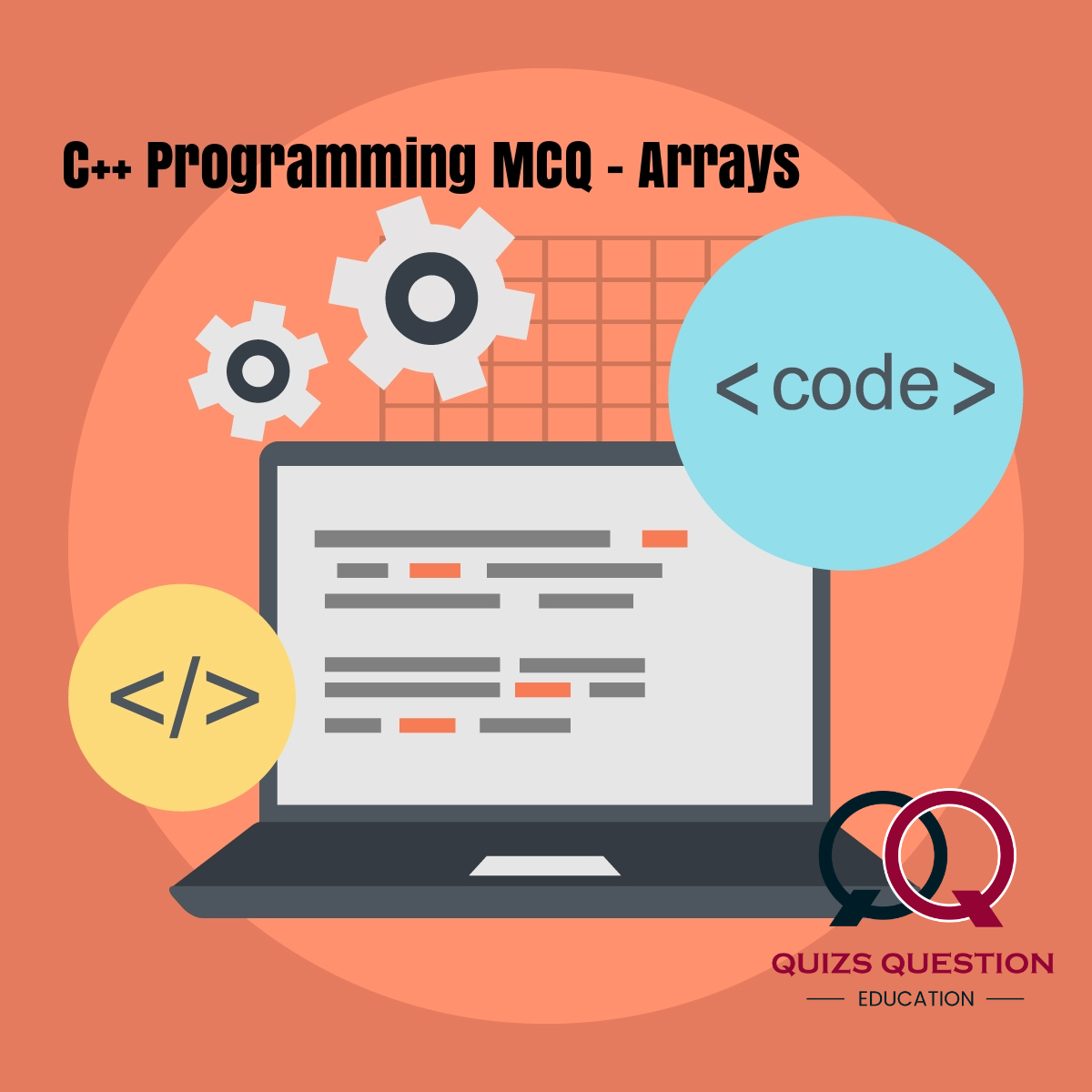Q 1. Which of the following correctly declares an array?
A. int array;
B. int array[10];
C. array{10};
D. array array[10];
Show Answer
Answer:-B. int array[10];Explanation
Because array variable and values need to be declared after the datatype only.Q2. What is the index number of the last element of an array with 9 elements?
A. 8
B. 9
C. 10
D. Programmer-defined
Show Answer
Answer:-A. 8Explanation
Because the first element always starts at 0. So it is on 8 position.Q 3. What is the correct definition of an array?
A. An array is a series of elements of the same type in contiguous memory locations
B. An array is a series of element
C. An array is a series of elements of the same type placed in non-contiguous memory locations
D. An array is an element of the different type
Show Answer
Answer:-A. An array is a series of elements of the same type in contiguous memory locationsExplanation
Correct definition of an array is An array is a series of elements of the same type in contiguous memory locations.Q 4. Which of the following accesses the seventh element stored in array?
A. array[6];
B. array[7];
C. array(7);
D. array;
Show Answer
Answer:-A. array[6];Explanation
The array location starts from zero, So it can accessed by array[6].Q 5. Which of the following gives the memory address of the first element in array?
A. array[0];
B. array[1];
C. array(2);
D. array;
Show Answer
Answer:-D. array;Explanation
To get the address of ith index of an array, we use following syntax (arr + i). So as we need address of first index we will use (arr + 0) equivalent to arr.Q 6. What will be the output of the following C++ code?
#include <stdio.h>
#include<iostream>
using namespace std;
int array1[] = {1200, 200, 2300, 1230, 1543};
int array2[] = {12, 14, 16, 18, 20};
int temp, result = 0;
int main()
{
for (temp = 0; temp < 5; temp++)
{
result += array1[temp];
}
for (temp = 0; temp < 4; temp++)
{
result += array2[temp];
}
cout << result;
return 0;
}
A. 6533
B. 6553
C. 6522
D. 12200
Show Answer
Answer:-A. 6533Explanation
In this program we are adding the every element of two arrays. Finally we got output as 6533. Output: $ g++ array.cpp $ a.out 6533Q 7. What will be the output of the following C++ code?
#include <stdio.h>
#include<iostream>
using namespace std;
int main ()
{
int array[] = {0, 2, 4, 6, 7, 5, 3};
int n, result = 0;
for (n = 0; n < 8; n++)
{
result += array[n];
}
cout << result;
return 0;
}
A. 25
B. 26
C. 27
D. 21
Show Answer
Answer:-C. 27Explanation
We are adding all the elements in the array and printing it. Total elements in the array is 7, but our for loop will go beyond 7 and add a garbage value.Q 8. What will be the output of the following C++ code?
#include <stdio.h>
#include<iostream>
using namespace std;
int main()
{
int a = 5, b = 10, c = 15;
int arr[3] = {&a, &b, &c};
cout << *arr[*arr[1] – 8];
return 0;
}
A. 15
B. 18
C. garbage value
D. compile time error
Show Answer
Answer:-D. compile time errorExplanation
The conversion is invalid in this array. So it will arise error. The following compilation error will be raised: cannot convert from ‘int *’ to ‘int’ This is because &a, &b and &c represent int* whereas the array defined is of int type.Q 9. What will be the output of the following C++ code?
#include <stdio.h>
#include <iostream>
using namespace std;
int main()
{
char str[5] = “ABC”;
cout << str[3];
cout << str;
return 0;
}
A. ABC
B. ABCD
C. AB
D. AC
Show Answer
Answer:-A. ABCExplanation
We are just printing the values of first 3 values. $ g++ array.cpp $ a.out ABCQ 10. What will be the output of the following C++ code?
#include <stdio.h>
#include <iostream>
using namespace std;
int main()
{
int array[] = {10, 20, 30};
cout << -2[array];
return 0;
}
A. -15
B. -30
C. compile time error
D. garbage value


Leave a Reply